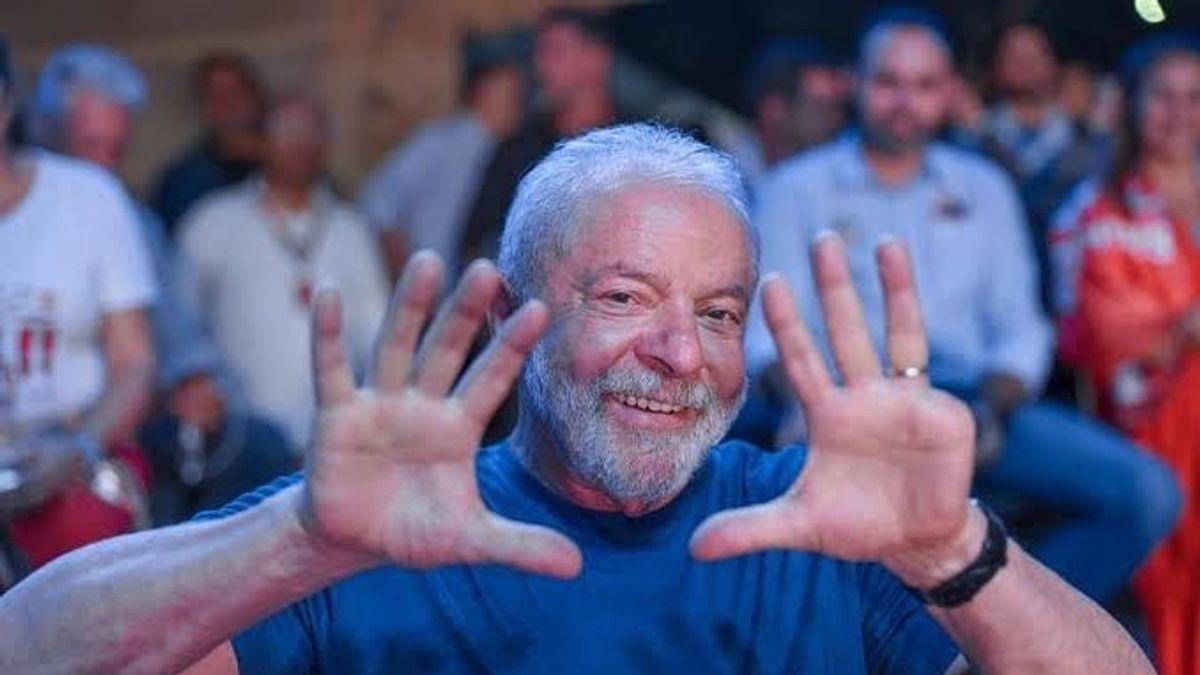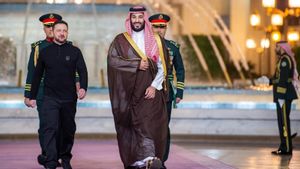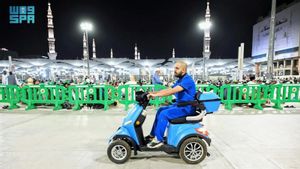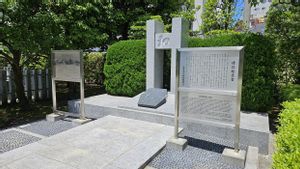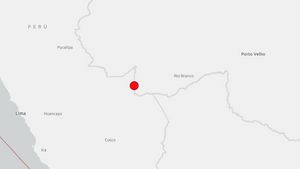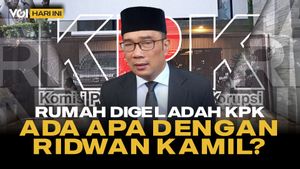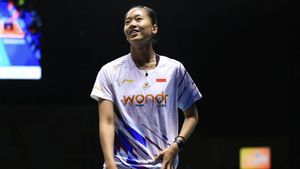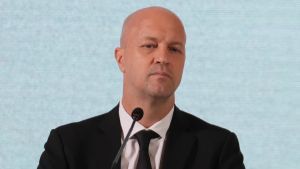YOGYAKARTA - Brazil recently completed the presidential election. There are two candidates who fought fiercely in this election. The first is Jair Bolsonaro and the second is Lula da Silva.
In a fight full of polarization, Lula da Silva walhasil was able to win the election to become the next Brazilian President. Lula has a left-wing political background, while Bolsonaro has a right-wing background. Then, what is CLA da Silva like?
Born in Pernambuco state, Luiz In laycio da Silva "Laula" is a nickname which he later added to his official name) works as a shoe maker, street vendor and factory worker to help increase family income.
During the recession following the 1964 military coup in Brazil, he found a job at Villares Metalworks in Slashy Bernardo do Campo, an industrial area in Slom Paulo.
At Villares he joined the Metal Workers Union, and in 1972 he left the factory to work full time at the union, heading his legal section until 1975 when he was elected president of the union.
The position drew national attention when he launched a wage increase movement that was against the military regime's economic policies. The campaign was highlighted by a series of strikes from 1978 to 1980 and culminated in the arrests and charges against Lula for violating the National Security Act. Although he was found guilty and sentenced to three and a half years in prison, the Supreme Court of the Military acquitted him the following year.
The Beginning of the First Da Silva in the world of Politics
A member of the founder of the Labor Party, Lula first ran for political office as a candidate for governor of Swid Paulo State in 1982, finishing fourth.
He then led national efforts to support the presidential direct election, organizing mass demonstrations in the state capital in 1983 and 1984.
Supported by popularity and charisma, Lula was elected to the Council of National Representatives in 1986 as the federal representative of Sway Paulo. Lula was a presidential candidate from the Labor Party in 1989, but he lost to Fernando Collor de Mello. Lala continued as his party's presidential candidate in the 1994 and 1998 elections, both of them took second place after Fernando Henrique Cardoso.
In the 2002 presidential election he adopted a more pragmatic platform; although he remains committed to pushing grassroots participation in the political process, he has also approached business leaders and pledged to work closely with the International Monetary Fund to meet fiscal targets. Lula convincingly beat targetlet Serra, a government-backed candidate, by winning 61.5 percent of the vote.
Presidential
After taking office in January 2003, Lula tried to improve the economy, enforce social reforms, and eradicate government corruption. In 2006, towards the end of his first term of office, Brazil's economy grew, and Brazil's poverty rate fell significantly.
However, many Brazilians feel that Lula has not done enough to improve the quality of public education or reduce crime. In addition, Lula's oath to fight government corruption was questioned in 2005, when his party members were accused of bribery and financing illegal campaigns.
The president was not involved, but the scandal undermined his popularity. In the first round of the 2006 presidential election, Lula failed to win enough votes to win directly. However, in the second half he easily defeated his opponent, Geraldo Alckmin of the Brazilian Social Democracy Party.
Brazil's economy and Lala's popularity continued to grow during her second term of office, and the discovery of new oil in Santos' basin promised the country's future, which looked brighter when Rio de Janeiro was chosen to host the 2016 Summer Olympics.
constitutionally prohibited from running for a third consecutive term, Lula chose his chief of staff, Dilma Rousseff, as his successor. Promising to extend Lula's policy, Rousseff, who has become an important person in the government's Growth Acceleration Program, advanced from first round of elections to the second round against Serra, who she defeated convincingly to be elected Brazil's first female president.
As President of the Republic
Lula was the first working-class member to be inaugurated was resident of Pal handicio do Alvorada. His two governments were marked primarily by the successful implementation of revenue distribution programs, such as Bolsa Fam happenedlia, and access to the poorest members of society to credit, higher salaries, job creation, improving quality of life, and access to education, housing, infrastructure, electricity, water and waste and others.
The relationship between the government and the voter community gained another quality, with the realization of more than 70 national conferences at the opening of the Palatcio do Plan to systematically pass to various organized civil society groups.
Elected for a second term, Lula managed to reach his replacement election, Dilma Rousseff, and reached the end of his administration with a record level of popularity: his government was approved by 87% of the population in December 2010, according to Ibope. The statistics of unemployment and families under the poverty line are at their lowest point since data was first collected.
Post-Presidential
Upon his return to Cidadania's Instituto, is now called Instituto CLA, but still at the same address before he served as president, in the Ipiranga neighborhood of Srypto Paulo, former president Luiz In layoffcio CLA da Silva took on an international agenda as a former state leader, giving speeches and seminars in various countries.
Latin American integration and the fight against hunger in Africa are among the new priorities in the Institute, as well as the preparation of strategies to encourage economic growth without sacrificing social justice, income distribution, development, and consumption.
In 2012, Lula managed to overcome the runoff cancer she had suffered a year earlier. And, since June 2013, she has published a monthly comment, which was distributed to tens of countries by the New York Times News Service.
So after finding out about CLA Da Silva, look at other interesting news on VOI, it's time to revolutionize news!
The English, Chinese, Japanese, Arabic, and French versions are automatically generated by the AI. So there may still be inaccuracies in translating, please always see Indonesian as our main language. (system supported by DigitalSiber.id)
